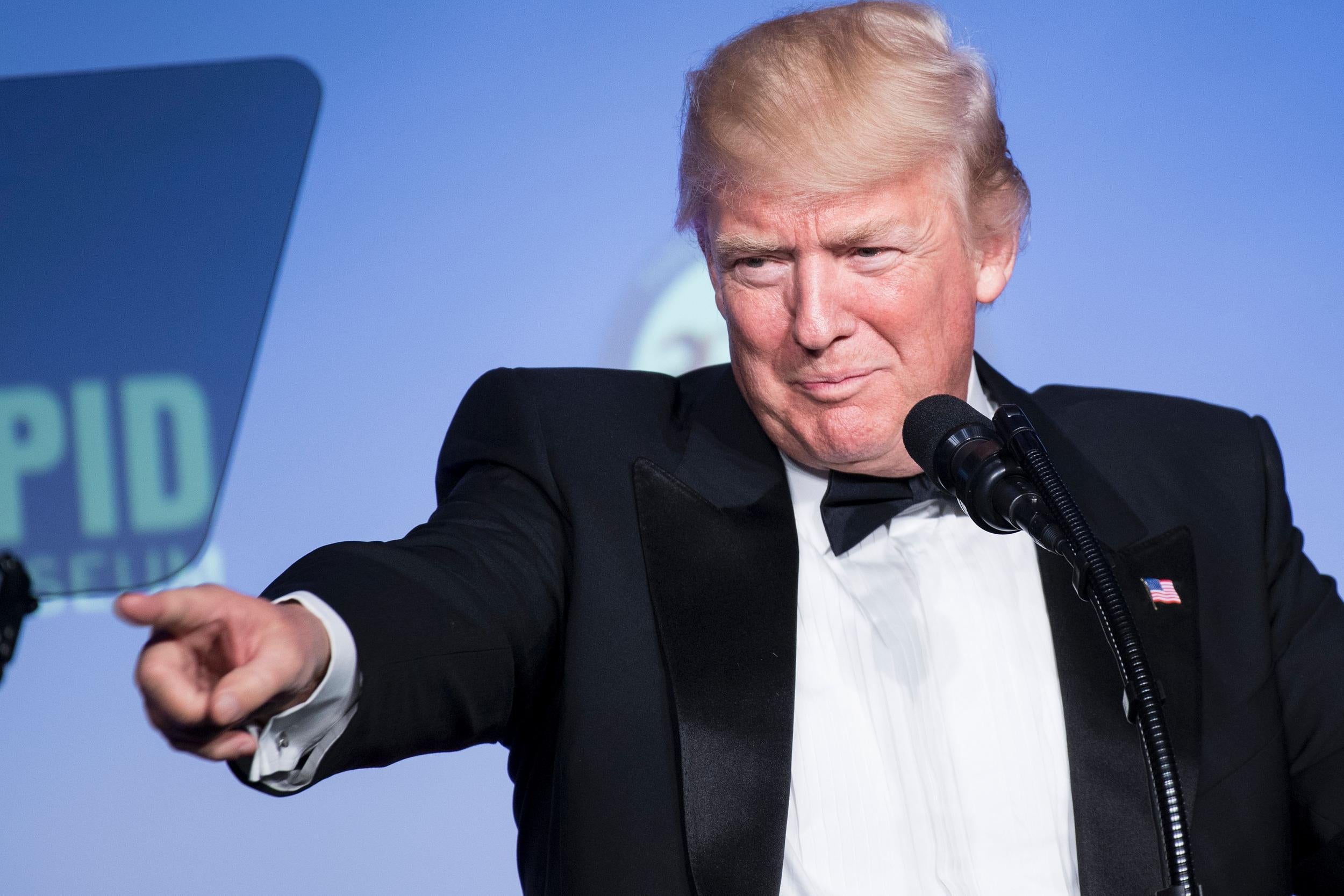US postpones decision on whether to withdraw from Paris climate agreement
A decision is expected after the next G7 meeting at the end of the month

Donald Trump has yet to make a decision on whether to withdraw from the Paris Agreement on climate change as global talks continue in Bonn, Germany.
White House Press Secretary Sean Spicer said during a news conference that the decision would not be announced until after the Group of Seven (G7) meeting in Italy later this month.
Mr Trump had said many times that he wanted to “cancel” the Paris Agreement.
Andrew Light, Senior Fellow at World Resources Institute and former US State Department climate official, said White House senior officials and Cabinet members were slated to meet on Tuesday regarding the decision but the meeting has been postponed.
Mr Light said the official reason given was that there were scheduling conflicts with Secretary of State Rex Tillerson and no rescheduled date has been made public.
Nearly 200 countries signed onto the Paris Agreement in December 2015 and it became a cornerstone for President Barack Obama’s environmental legacy.
The agreement entered into force for the US on 4 November 2016 - just days before Mr Trump was elected.
The process for the US to decide whether they can or should withdraw from the agreement is complex, though the Paris Agreement was not ratified through Congress.
Mr Obama felt at the time that he would have faced too much opposition from climate deniers in Congress despite the country being one of the world’s largest emitters of carbon dioxide.
Mr Trump has sent a smaller team than usual to the current round of negotiations taking place in Bonn, Germany this month. No country’s officials are saying they are changing their own policies based on Mr Trump’s indecisiveness but they are keeping an eye on him.
Climate diplomats see that Mr Trump has proposed cutting the budget by nearly a third to agencies like the Environmental Protection Agency (EPA), which also funds several state and local climate change programmes.
He also appointed climate deniers like EPA head Scott Pruitt and advisor Steve Bannon to key roles.
Mr Tillerson is a former Exxon executive and has yet to appoint deputies in the State Department on a range of issues including climate change, though has said he thinks climate change is real.
The delayed announcement by the White House is a situation members of the G7 were hoping to avoid. During the last summit in April, which focused on energy, no joint statement was issued on climate change as had been done in the past.
The G7 issued a joint statement from their 2015 meeting saying that climate change was a major global security threat, noting that its impact crosses borders, adds to violent conflicts, and has a negative impact on economies in the developing world.
Alden Meyer, Director of Strategy and Policy at the Union of Concerned Scientists told The Independent said the more interaction and exposure Mr Trump gets to the G7 leaders while they meet in Italy later in May, “the better.”
Mr Trump does seem to prefer face-to-face interactions with world leaders to clarify his positions rather than other diplomatic avenues.
He called climate change a “hoax” perpetrated by China but his tune has changed since his personal meeting with Chinese President Xi Jinping, who has led his country to be a global leader on investing in renewable energy.
It could also be due to the US needing China to cooperate on getting North Korea to denuclearise, a priority for Mr Trump.
Business leaders are also likely playing a part in Mr Trump’s delayed announcement according to Mr Meyer.
He said they may have made the president realise that withdrawing from such a massive global agreement is a serious decision that “should not be made quickly or flippantly.”
In 2015, investments in renewable energy - about $350 billion (£ 271 billion) - outpaced new investments in the oil and gas sector for the first time ever.
Several multi-billion dollar pension funds have also divested from companies that have ignored climate change concerns, primarily in the oil, gas, and manufacturing sectors.
In Bonn, the US delegation will participate in a “review” that each country goes through as part of being in the Paris Agreement. Mr Meyer said he expects that the delegation will allow Australia to take the lead in some of the larger, formal meetings.
Attendees said the US has been keeping a relatively low profile at the informal meetings in light of a pending decision.
Join our commenting forum
Join thought-provoking conversations, follow other Independent readers and see their replies
Comments